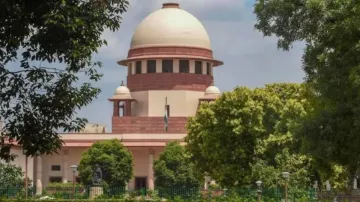The AIMPLB (All India Muslim Personal Law Board) will challenge the Supreme Court's decision regarding alimony that mandates the payment of maintenance to Muslim divorcee women beyond the period of 'Iddat'. The decision was taken in a meeting held in Delhi on Sunday (July 14). The AIMPLB convened a meeting to discuss the Supreme Court's order and deliberate on the legal options available. In the meeting, the board argued that according to Sharia law, a woman is entitled to alimony only until the completion of her iddat (waiting period); after that, she is free to remarry.
The board further argued that if the children stay with the woman, it is the husband's responsibility to bear their expenses.
The Personal Law Board also contended that Indian Muslims should provide their daughters with a share in property according to Sharia law. It further stated that if a divorced woman faces difficulties in sustaining herself, the Waqf Boards of different states should take responsibility, as the board's property belongs to Muslims.
Supreme Court ruling
In a historic judgement, the Supreme Court on July 10 ruled that Muslim women can seek maintenance from their husbands under section 125 of the Code of Criminal Procedure (CrPC), which deals with a wife's right to maintenance, applies to all married women regardless of their religion.
A bench of Justices BV Nagarathna and Augustine George Masih, in a separate but concurrent verdict, said that section 125 of the erstwhile CrPC, which addresses a wife's legal right to maintenance, also applies to Muslim women. "We are hereby dismissing the criminal appeal with the major conclusion that section 125 would be applicable to all women and not just married women," Justice Nagarathna said while pronouncing the verdict.
The ruling has triggered a heated debate within the Muslim community and among various personal law boards. The AIMPLB's position is rooted in the belief that the order contradicts Islamic Shariat law, which stipulates that a husband is obligated to pay maintenance only during the Iddat period (a three-and-a-quarter month timeframe) following a divorce.
After this period, a woman is free to remarry or live independently, and the former husband is no longer responsible for her maintenance.
ALSO READ | Muslim women can seek maintenance from husbands after divorce: Supreme Court
Latest India News

